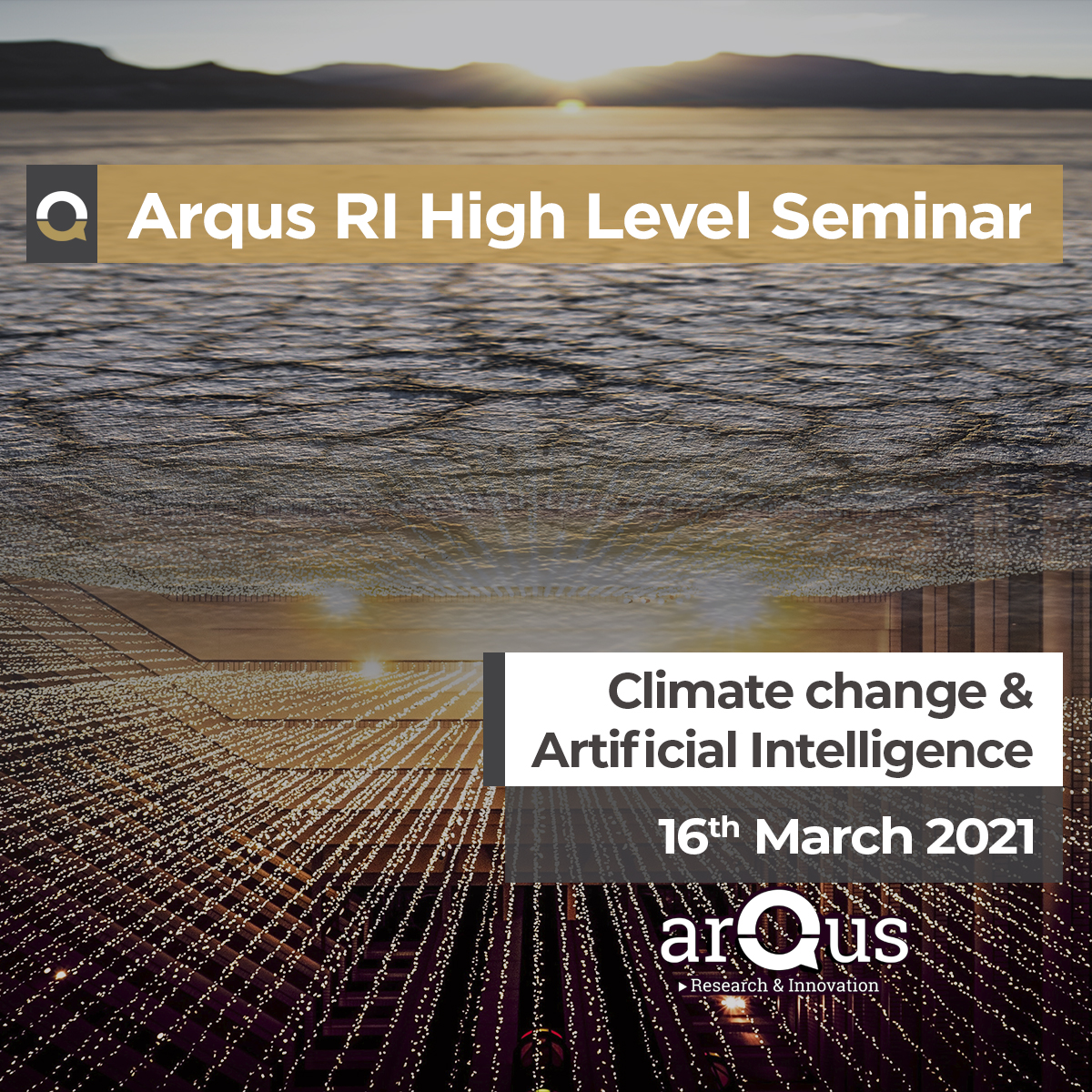The Seven Arqus Universities Embark on an Initiative to Foster Joint Research and Innovation
 The Arqus European University Alliance, which brings together the universities of Bergen, Granada, Graz, Leipzig, Lyon, Padova and Vilnius, presents the first High-Level Seminar, during which two priority areas for the Alliance will be explored: Artificial Intelligence and Climate Change. This is the first of a series of High-Level Seminars with the final goal of developing a Joint Research Action Plan, complementing individual Research Action Plans of each university.
The Arqus European University Alliance, which brings together the universities of Bergen, Granada, Graz, Leipzig, Lyon, Padova and Vilnius, presents the first High-Level Seminar, during which two priority areas for the Alliance will be explored: Artificial Intelligence and Climate Change. This is the first of a series of High-Level Seminars with the final goal of developing a Joint Research Action Plan, complementing individual Research Action Plans of each university.
Vice-Rectors for Research and senior research policy officers of the seven universities of the Arqus Alliance will come together on 16th March to lay the foundations of a joint research action plan. Artificial Intelligence and Climate Change are the two priority areas identified by the universities as fields for common action. Two fields where the Arqus universities are already very active and that are crucial due to their social relevance and potential for future joint research.
As Enrique Herrera Viedma, Vice-Rector for Research and Technology Transfer at the University of Granada (UGR), points out, "considering that each of the Arqus universities is already very strong in Research and Innovation by itself, we want to unleash the potential of what we could do together, imagining our excellent researchers working together and sharing state-of-the-art infrastructure. The High-Level Seminars are a great opportunity for all of us to create synergies and foster our joint research capacities”.
The seminar will consist of an “Open brainstorming discussion” on how to go beyond cooperation in research to lay the foundations of shared initiatives arising from their respective research policies, exploring common ground and determining common goals and obstacles that will have to be overcome (legal, regulatory) to achieve those common goals.
This 3-hour seminar will be a closed meeting of high-level representatives of each university (Research Vice-Rectors and senior research policy officers). “This first high-level seminar devoted to the research mission of our universities and how we can enhance our current activities and output by working together as a structured alliance, is of crucial importance for reaching the objectives of Arqus in the coming years. We are all convinced that joining forces makes us stronger and brings more meaningful societal impact”, states Dorothy Kelly, Coordinator of the Arqus Alliance.
“With the research component of the Arqus University Alliance, we will bring together excellent researchers from partner universities. Based on the broad disciplinary cultures of the partner universities, we can contribute to a democratic digital transformation and climate neutrality in Europe with cutting-edge research. Scientific excellence also involves contributing to these transformations, and so we will collaborate to identify coherent criteria for transformative excellence in research assessment,” Petra Schaper-Rinkel, Vice-Rector for Digital Transformation at the University of Graz, adds.
As a result of the first High-Level Seminar, a set of common goals will be defined, and working groups of experts will be commissioned to carry out an in-depth analysis of the legal and regulatory framework to detect possible obstacles and propose ways to overcome them. The findings of these experts will be analysed at a forthcoming High-Level Seminar, hopefully in person, at the Arqus Annual Conference in Vilnius in October 2021.
The framework for the High-Level Seminars is the Arqus Research and Innovation Project, funded by H2020. The Joint Research Action Plan should be finalized by December 2021, to be rolled out in the following two years. This Plan lays the foundations for the long-term research cooperation of the Arqus Alliance universities. The Arqus Research and Innovation project has received funding from the European Union's Horizon 2020 Research and Innovation Programme under grant agreement No 101017448.
More information and programme of the seminar here.